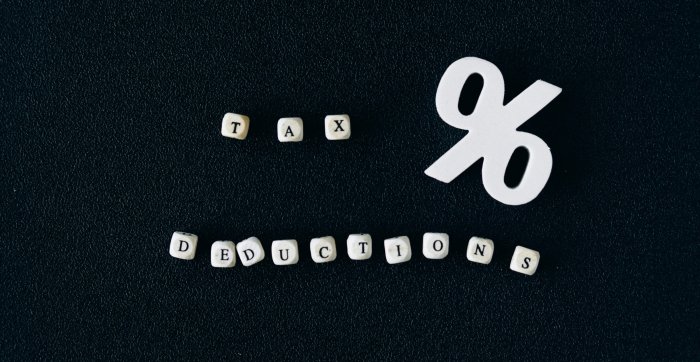
The FBT exemption only applies if the benefits are both minor and infrequent.
If you are providing items like mobile phones, laptops, tablets, portable printers, protective clothing, tools of trade etc., or minor and infrequent benefits that are less than $300 in value, you are unlikely to have to worry about FBT.
Applying the minor and infrequent benefits exemptions: Common mistake
Many employers are unknowingly falling foul of the FBT regime through an incorrect interpretation of the minor and infrequent exemption allowed for benefits that cost less than $300.
The most prevalent area where employers find themselves in trouble when applying the minor and infrequent exemption is in relation to the provision of meal entertainment.
Meal entertainment applies predominantly to the provision of food or drink to employees, and not consumed on the employer’s business premises. Where the value of the food or drink is less than $300 per person the exemption can be claimed, provided the employee only receives this benefit infrequently throughout the year.
Working out whether a meal entertainment benefit is minor is straightforward—you just need to check the receipt. Where employers find themselves in trouble is working out if the benefit is infrequent enough to satisfy that condition.
As a rule of thumb, we recommend that you only provide meal entertainment benefits for an employee no more than 10 times in a given FBT year. Once the benefit you are providing exceeds the infrequent condition, all benefits of that type for that employee become subject to FBT.
Note: Taking employees out of the office to enjoy a coffee is a form of meal entertainment. Do this too often throughout the year and an employer may find themselves subject to FBT on all the meal entertainment benefits they provide to that employee (including any year-end social functions). Failure to maintain an appropriate register of exactly which employees are receiving benefits could result in all meal entertainment benefits becoming subject to FBT.
Download: Applying the Minor & Infrequent Benefits Exemptions factsheet.
Are there any special COVID-19 exemptions for FBT?
You may provide your employees with benefits you do not usually make available, because of COVID-19. This includes paying for items that allow your employees to work from home.
Working from home
You may have provided employees with items to allow them to work from home (or from another location) due to COVID-19. Some items will usually be exempt from FBT if your employees primarily use them for work. The items include:
- Laptops
- Portable printers
- Other electronic devices.
Also, the minor benefits exemption or the otherwise deductible rule may apply if you:
- Allow your employee to use a monitor, mouse or keyboard they oth- erwise use in the workplace, or
- Provide them with stationery or computer consumables or pay for their phone and internet access.
Protective equipment
You may need to pay FBT on items you give your employees to help protect them from contracting COVID-19 while at work. These include:
- Gloves
- Masks
- Sanitisers
- Anti-bacterial spray.
However, these benefits are exempt from FBT under the emergency assistance exemption if you provide them to employees:
- Who have physical contact with—or are in close proximity to— customers or clients while carrying out their duties, or
- Are involved in cleaning the premises. Examples of this type of work include:
- Medical (such as doctors, nurses, dentists and allied health workers)
- Cleaning
- Airline
- Hairdressing and beautician
- Retail, café and restaurant.
If your employees’ specific employment duties are not of the kind described in the preceding list, the minor benefits exemption may apply if you provide an employee with minor, infrequent and irregular benefits under $300.
Motor vehicles during COVID-19 restrictions
You will not provide a car fringe benefit where a car is not used by an employee for private use.
During a period of COVID-19 restrictions, a car that you have provided to your employee is not taken to be available for your employee’s private use if all the following apply:
- The car is returned to your business premises.
- Your employee cannot gain access to the car.
- Your employee has relinquished an entitlement to use your car for private purposes.
You may have been garaging work cars at your employees’ homes due to COVID-19. You may not have an FBT liability, depending on:
- The type of vehicle
- How often the car is driven
- The calculation method you choose for car benefits.
If you’re an employer who is providing cars to your employees, here’s what you need to know.
Ways you can reduce your FBT liability
Here are some ways in which you can reduce your FBT liability:
- Replace your fringe benefits with a cash salary.
- Provide benefits that your employees would be entitled to claim as an income tax deduction if they had to pay for the benefits them- selves.
- Look at providing benefits that are exempt from FBT.
- Use employee contributions (e.g. an employee paying for some of the operating costs of car fringe benefit such as fuel for which you do not reimburse them). You need to be aware that employee contribu- tions will be deemed assessable income to you, and subject to GST.
How an associate lease can improve a family’s after-tax cash flows
An ‘associate lease’ can be used to help improve an employee’s after-tax cash flows, where one spouse earns considerably more than their partner and is a tax-effective way to acquire a vehicle while boosting the income earned by the family.
How this is achieved
The following four steps outline how this is achieved:
- An associate of an employee (i.e. usually their spouse) purchases a car from an arm’s length party using their own cash reserves.
- The associate then leases the car to the employee’s employer, who then provides the same car back to the employee as a car fringe benefit. Any FBT payable in relation to the car fringe benefit is cal- culated in the usual way under either the operating cost or statu- tory formula method, and
- The employee is required to salary sacrifice the GST-exclusive amount of any car expenses (including the lease or other payments made to the associate of the employee), as well as any FBT that is payable by the employer in relation to the car fringe benefit, and
The associate of the employee then includes any lease (or other related) payments made to them by the employer as assessable income and claims the appropriate deductions in respect of the leased car against this income
Contact KMT accountants now if you need advice or assistance with FBT Return lodgement!
This is general advice only and does not take into account your financial circumstances, needs and objectives. Before making any decision based on this document, you should assess your own circumstances or seek tax advice from a qualified accountant at KMT Partners. Information is current at the date of issue and may change.


